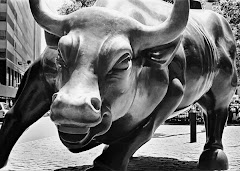Opening Accounts
To trade stocks in Singapore Exchange (SGX), you needs to open two accounts, a securities account and a trading account. The securities account is to be opened with the Central Depository (CDP). The CDP is the custodian of members’ shares of the locally-listed companies. Decades ago, buying and selling shares involved the transfer of a physical paper called the share certificate. It is massive and inconvenient. But today, all are electronically recorded with the CDP. The securities account records the movement of shares in and out of your account. After opening a securities account, a trading account is needed to buy and sell shares. A trading account can be opened with any broking house (member of SGX) and a Trade Representative (TR) or commonly known as a broker or remisier, will be introduced to you. The TR is a licensed broker who will execute transactions according to a client’s order. When applying for a trading account, you have the following options:
- To apply for GIRO so that all your payments and receipts are done automatically. Otherwise, you have to either write cheques or visit an ATM to make "Electronic Payment for Shares".
- To apply for internet trading account. With internet trading account, you can key in your orders anytime even after trading hours. If you key in your orders after trading hours, your orders will only be send to the SGX’s trading platform when stock market opens the next day. Another advantage of internet trading is that the brokerage fee is slightly cheaper than placing order through your TR.
Once these two accounts are linked, the fun begins.
Investment with CPF Savings
If you wish to use your Central Provident Fund (CPF) Ordinary Account to buy shares, you need to open an Investment Account with an agent bank (DBS, OCBC or UOB). The agent bank will be authorized to withdraw CPF savings from member’s Ordinary Account for investment, and keep track of member’s investment holdings and transactions. The amount that can be used for investment depends on the types of investment products. Without going into the detail computation:
- Full amount can be use to buy unit trust, Government Bonds, ETF, fixed deposit etc. These are products with lower risk.
- 35% can be used to buy stocks.
- 10% can be used to buy gold.
Important note:
1) You cannot contra your purchases through CPF money on the same trading day.
2) Also if your transaction value is greater than the balance investible amount in your Ordinary Account, you can either contra off or pay the difference in cash.
3) Investment with CPF savings involved higher opportunity cost compare to savings in the bank. This is because as of today and in fact for many years, CPF savings offer an interest rate which is much higher than the bank’s saving deposit. As such, there is a strategy in using CPF savings especially when the Ordinary Account is needed for housing purpose and retirement saving. It is about overall personal financial planning. I will cover this area some other time.
Opening all of the above accounts are F.O.C. But there will be various service charges from all these agents whenever you conduct a trade (buying or selling). Check with your TR for details.
Buying And Selling
Share prices are determined by market forces of supply and demand. The stock market will display the “bid” (or buy) and “offer” (or sell) price of a counter (i.e. a company’s share). You can enter your buy or sell order based on the six bid rules. Example, for a counter below S$1.00, say S$0.80 is the last traded price, you can execute your order to buy or sell at any price but up to a maximum of S$0.77 or S$0.83 respectively. In this case, one bid equals to half a cent. Generally, shares are traded in board lots of 1,000 shares. Thus 1,000 shares is also known as "one lot". Check with your TR for detail.
To trade stocks in Singapore Exchange (SGX), you needs to open two accounts, a securities account and a trading account. The securities account is to be opened with the Central Depository (CDP). The CDP is the custodian of members’ shares of the locally-listed companies. Decades ago, buying and selling shares involved the transfer of a physical paper called the share certificate. It is massive and inconvenient. But today, all are electronically recorded with the CDP. The securities account records the movement of shares in and out of your account. After opening a securities account, a trading account is needed to buy and sell shares. A trading account can be opened with any broking house (member of SGX) and a Trade Representative (TR) or commonly known as a broker or remisier, will be introduced to you. The TR is a licensed broker who will execute transactions according to a client’s order. When applying for a trading account, you have the following options:
- To apply for GIRO so that all your payments and receipts are done automatically. Otherwise, you have to either write cheques or visit an ATM to make "Electronic Payment for Shares".
- To apply for internet trading account. With internet trading account, you can key in your orders anytime even after trading hours. If you key in your orders after trading hours, your orders will only be send to the SGX’s trading platform when stock market opens the next day. Another advantage of internet trading is that the brokerage fee is slightly cheaper than placing order through your TR.
Once these two accounts are linked, the fun begins.
Investment with CPF Savings
If you wish to use your Central Provident Fund (CPF) Ordinary Account to buy shares, you need to open an Investment Account with an agent bank (DBS, OCBC or UOB). The agent bank will be authorized to withdraw CPF savings from member’s Ordinary Account for investment, and keep track of member’s investment holdings and transactions. The amount that can be used for investment depends on the types of investment products. Without going into the detail computation:
- Full amount can be use to buy unit trust, Government Bonds, ETF, fixed deposit etc. These are products with lower risk.
- 35% can be used to buy stocks.
- 10% can be used to buy gold.
Important note:
1) You cannot contra your purchases through CPF money on the same trading day.
2) Also if your transaction value is greater than the balance investible amount in your Ordinary Account, you can either contra off or pay the difference in cash.
3) Investment with CPF savings involved higher opportunity cost compare to savings in the bank. This is because as of today and in fact for many years, CPF savings offer an interest rate which is much higher than the bank’s saving deposit. As such, there is a strategy in using CPF savings especially when the Ordinary Account is needed for housing purpose and retirement saving. It is about overall personal financial planning. I will cover this area some other time.
Opening all of the above accounts are F.O.C. But there will be various service charges from all these agents whenever you conduct a trade (buying or selling). Check with your TR for details.
Buying And Selling
Share prices are determined by market forces of supply and demand. The stock market will display the “bid” (or buy) and “offer” (or sell) price of a counter (i.e. a company’s share). You can enter your buy or sell order based on the six bid rules. Example, for a counter below S$1.00, say S$0.80 is the last traded price, you can execute your order to buy or sell at any price but up to a maximum of S$0.77 or S$0.83 respectively. In this case, one bid equals to half a cent. Generally, shares are traded in board lots of 1,000 shares. Thus 1,000 shares is also known as "one lot". Check with your TR for detail.
Take note that not all counters can be invested through CPF savings. A listed company must fulfil a few criteria before it can be approved under the CPFIS. Example, the company must be incorporated in Singapore and traded in sing dollars. Check with your TR before you place your orders.
There are strategies in buying or selling a counter. I am not talking about analysing a company, I am talking about purely the buying or selling activity. What if the counter you wanted very much has poor liquidity such that bid and offer price are far apart? What if you intends to buy 10,000 shares (or ten lots) but someone sold to you 1,000 shares by the time market closed? I will cover these areas next time.
The settlement period for any transaction is T+3 (trading) days. If you buy a stock on Monday, then you must make payment by Thursday. What is “contra” and what is “sell short”? Contra is when you bought some shares but have no intention to pay for it. So you will sell it off within the settlement period. To short means that you execute a sell order without owning the company’s shares in the first place. Now, since I strongly against speculation (or gambling) I will not dwell further on these areas.
Lastly, to apply for an IPO, you should get a copy of the prospectus. After reading through and you wish to apply for it, you can do so through an ATM. Alternatively, you can get a copy of the application form from the company's registrar, and send it together with your cashier's order. You will have to pay full amount based on the quantity of shares you applied for. However, you may or may not receive the full quantity you applied for, depending on the balloting results. There is a little strategy in applying for IPO which I will cover next time. If you are not alloted fully, then the balance amount will be credited back to you.
So just visit a broking house and the friendly customer service officer will guide you along.




No comments:
Post a Comment